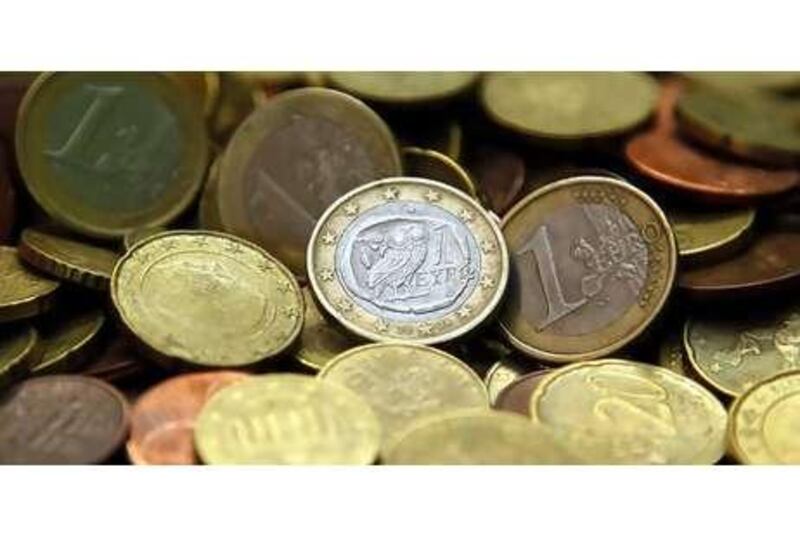Last week's EU summit underlined fundamental disagreements between Europe and the US on how to boost the global recovery. But their spat may be eclipsed at the coming meeting of Group of 20 (G20) leading and emerging economies by cautious optimism about China's decision to make its yuan exchange rate more "flexible".
In recent months transatlantic differences have widened, with US officials criticising Europe's focus on austerity programmes to reduce budget deficits that have thrown the euro into crisis since the near-bankruptcy of Greece. American government and central bank officials fear Europe's rush to cut spending could stall the global recovery. Timothy Geithner, the secretary of the US Treasury, has been urging "European surplus countries" - a reference directed largely at Germany with its perennial trade surplus - to boost domestic demand and help to enhance and rebalance world growth.
Mr Geithner's demands fell on deaf ears at last Thursday's EU summit where the leaders of the 27-nation bloc, preoccupied with market fears about Spain's financial health, reaffirmed their commitment to spending cuts and to new guidelines for tougher budget rules to be agreed to this year. While the US believes economic recovery is key to restoring public finances, Europe sees it the other way around, arguing fiscal restraint is essential to avoid uncontrollable inflation and to restore the market confidence necessary for growth.
It is essentially a disagreement on the timing of budget cuts. The summit of the G20 leaders in Toronto on Saturday and Sunday will not resolve those differences. Europe has been so rattled by its debt crisis and by speculators assaulting its single currency that it will not risk slowing down its budget cuts, painful and unpopular as they may be. But Europe did move closer to the US on bank transparency by agreeing, surprisingly, to publish new stress tests of its 25 biggest banks in the second half of next month.
Barack Obama, the US president, had urged fellow G20 leaders to follow Washington's lead and do more to address the lingering uncertainty over the balance sheets of its banks. US regulators had published bank stress tests last year and the move had been credited with calming markets. The European tests will be conducted by national banking supervisors and are expected to eventually cover more than the 25 top banks.
Markets have been increasingly concerned some banks might be unable to cope with a sharp slowdown in economic growth resulting from the current government spending cuts around Europe. The stress tests model the effects on banks of possible economic scenarios and EU governments hope they will help to allay fears that banks are about to face trouble again. But as ever, the devil is in the detail. It remains unclear if the tests will include smaller Spanish savings banks and Germany's struggling public sector regional banks, or landesbanken, which have been of greatest concern to financial markets.
And it is equally unclear how stressful those tests will be. It is highly unlikely regulators will assess the impact on banks of a full-scale debt default by a euro-zone country. But if they don't, markets will continue to worry. A further complication is that Germany cannot force its banks to agree to disclose tests on them, and will have to rely on them bowing to peer pressure. EU calls for a global bank tax to help to pay for the bailouts of financial institutions in the past financial crisis are almost certain to be rejected in Toronto because opposition from countries with banks that came through the crisis unscathed, such as Japan, Canada and Brazil. Germany's proposal of an additional financial transactions tax is even less likely to win backers in Canada.
But transatlantic rifts could be shelved at the G20 because all eyes are likely to be on China. Leaders will be focusing on obtaining more details on China's announcement on Saturday that it will ease its currency's 23-month peg to the US dollar. The People's Bank of China said it would be more flexible in managing the yuan, although it saw no need for a one-off rise against the dollar. It did not say what it meant by more flexibility or when the changes would come into effect.
It is a cleverly timed move by China to take some of the heat off itself at the G20 meeting where the US, racked by high unemployment and irked by China's 48.5 per cent surge in exports last month, was expected to repeat that an undervalued currency is giving China an unfair trade advantage. Saturday's announcement is likely to stop the US government from calling China a "currency manipulator" and imposing trade sanctions against it.
But if China's "flexibility" has no appreciable impact on the yuan, it is only a matter of time before economic tensions grow again. @Email:business@thenational.ae






